29 August to 2 September 2021
Online
Website: https://bit.ly/3eVK3rk
WiFo 2021
GDCh-Wissenschaftsforum Chemie 2021 (WiFo 2021)
29 August to 1 September 2021
Online
Website: https://bit.ly/2PMDSgA
European Research and Innovation Days
Organised by the European Commission
23 – 24 June 2021
Online
Website: https://bit.ly/3ueUcpb
Eurovariety 2021
9th European Variety in University Chemistry Education Conference
7 – 9 July 2021
Hybrid: Ljubljana, Slovenia & online
Website: https://bit.ly/3qshEgB
Young Investigator Workshop
1st Young Investigator Workshop of the EuChemS Division Chemistry for Life Science
24 – 25 May 2021
Online
Website: https://bit.ly/3aYP94K
Sustainable Chemistry Lecture Series – SCLS
5th Sustainable Chemistry Lecture Series – SCLS
Thursday 20 May 2021, 16:00 CEST
Online
Website: https://bit.ly/3nsz7VK
Heritage and History of Chemistry – WPHC online event
Heritage and History of Chemistry webinar
Thursday 20 May 2021, 13:00 CEST
Online
Website: https://bit.ly/2R3gCv8
7th Portuguese Young Chemists Meeting – 7PYCheM
7th Portuguese Young Chemists Meeting
19 – 21 May 2021
Online
Website: https://bit.ly/3eAMoaM
Bioinks, a prelude to tomorrow’s medicine?
Webinar “Bioinks, a prelude to tomorrow’s medicine?”
19 May 2021, 19:00 CEST
Online
Website: https://bit.ly/2RdzJmm
2019 EuChemS Lecture Awardee – Webinar
The European Chemical Society, EuChemS, is organising the 2019 EuChemS Lecture Awardee Webinar. The online event will be held on Wednesday 23 June, from 15:00 to 16:30 CEST. During this event, David Portehault, EuChemS 2019 Lecturer, will give a talk on “From water to molten salts: geoinspired syntheses and reactivity of nanomaterials“.
 Registration link ➡️ HERE
Registration link ➡️ HERE
In his EuChemS Lecture, David Portehault will present the recent efforts of the group in taking inspiration from nature, more specifically from geological events, to synthesize original nanomaterials. David will present geo-inspired synthesis conditions, from low temperature chimie douce in water, to liquid-phase synthesis in inorganic molten salts and to high pressures. He will show several cases of inorganic nanomaterials encompassing complex oxides and non-oxides like boron-, nitrogen- and silicon-based solids, discuss their formation pathways and show the unique electrochromic and electrocatalytic properties at stake with these nanoparticle-based materials.
Discover more about the programme and the speakers for this webinar here.
EU Prize for Women Innovators
The call for the 2021 EU Prize for Women Innovators is now open. The deadline for submissions is 30 June 2021, 17:00 CEST.
Find out more about it here.
ERC Advanced Grants
Researchers who would like to compete for an ERC Advanced Grant have from 20 May to 31 August 2021 to apply for the next round of funding.
More information about it here.
2021 Call for elected members of the EuChemS Executive Board
The call for nominations for three (3) vacancies for elected members of the EuChemS Executive Board is now open. You are kindly invited to make nominations through the online form by Friday 16 July 2021, 18:00 CEST. The nomination of female candidates is particularly encouraged.
More information about it here.
European Food Safety Authority (EFSA) public consultations
A number of consultations put forward by the European Food Safety Authority (EFSA) are currently open.
- Public consultation on the active substance Dicamba
Deadline: 19 June 2021 – 23:59 (CEST)
You can take a look at them here.
EuChemS is an official accredited stakeholder of the European Food Safety Authority (EFSA).
European Chemicals Agency (ECHA) public consultations
A number of consultations put forward by the European Chemicals Agency (ECHA) are currently open.
- Call for comments and evidence on 1,4-dioxane and substances containing 1,4-dioxane (under REACH)
Deadline: 17 June 2021 - Call for evidence on 1,4-dioxane related to scientific evaluation of exposure limits at the workplace
Deadline: 22 June 2021 - Call for evidence on isoprene related to scientific evaluation of exposure limits at the workplace.
Deadline: 13 July 2021 - Consultation on the restriction proposal of lead in outdoor shooting and fishing
Deadline: 24 September 2021
You can take a look at them here.
EuChemS is an official accredited stakeholder of the European Chemicals Agency (ECHA).
European Commission Public Consultations and Roadmaps
A number of consultations and roadmaps put forward by the European Commission are currently open:
- Revision of EU legislation on hazard classification, labelling and packaging of chemicals
Deadline: 1 June 2021 - Chemicals legislation – revision of REACH Regulation to help achieve a toxic-free environment
Deadline: 1 June 2021 - Chemicals regulation (REACH) – updated list of restricted substances
Deadline: 2 June 2021 - Energy efficiency and circular economy — ecodesign and energy labelling working plan 2020-2024
Deadline: 2 June 2021 - Public consultation on Sustainable products initiatives
Deadline: 9 June 2021 - Animal nutrition – modernisation of EU rules on feed additives
Deadline: 17 June 2021 - Water pollution – EU rules on urban wastewater treatment
Deadline: 21 July 2021
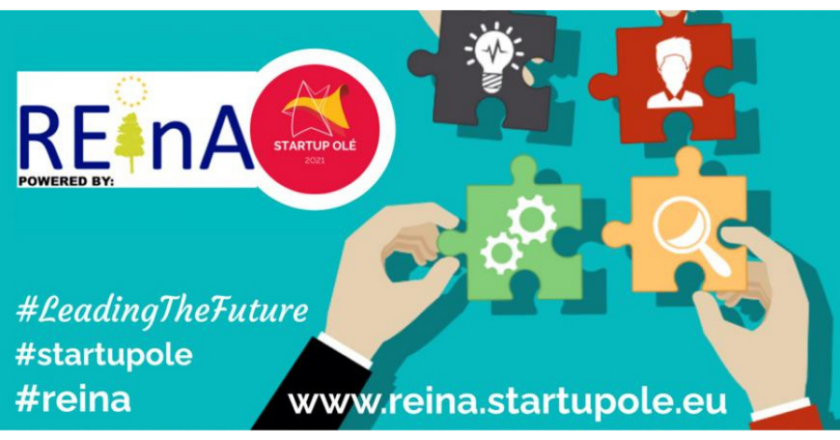
Manifesto for Rural Innovation
On 6 April 2021, the commissioner for Innovation, Research, Culture, Education and Youth, Mariya Gabriel, launched the Manifesto for Rural Innovation in partnership with the Rural European Innovation Area (REInA).
In this declaration, the European Commission supports this initiative which aims to fill the gap between rural and urban areas in terms of social, economic, and environmental differences. The fields targeted by the approach are research, education, industry, new technologies and digital framework.
The main recommendations to improve rural attractivity are:
- Skills and talent by implementing the latest technologies, Open Online Courses and rural incubators;
- Culture and Mindset Shift by developing local medias and creating innovation map;
- Connecting Innovation Actors by establishing networks, communication platforms, physical space for remote workers and European/national jobs;
- Attractive work-life environment for young professionals by promoting tax incentives for entrepreneurs, developing entertainment and adapt urbanism norms to rural areas;
- Leadership and Monitoring by appointing Chief Rural Innovation Officer (CRIO) and rewarding innovation champions.
The Manifesto is still available for support on the REInA website.
Happy to launch #RuralEuropeanInnovationArea w/ @jwojc @CristianSBusoi @RicardoR_Usal @StartupOle!
We need #innovation ecosystems in rural areas to help them get out of the crisis & remain attractive.🌱
Let’s unlock the #innovation potential in rural 🇪🇺! 💡#HorizonEU #EIT #EIC pic.twitter.com/d40O7Tw7dD
— Mariya Gabriel (@GabrielMariya) April 6, 2021
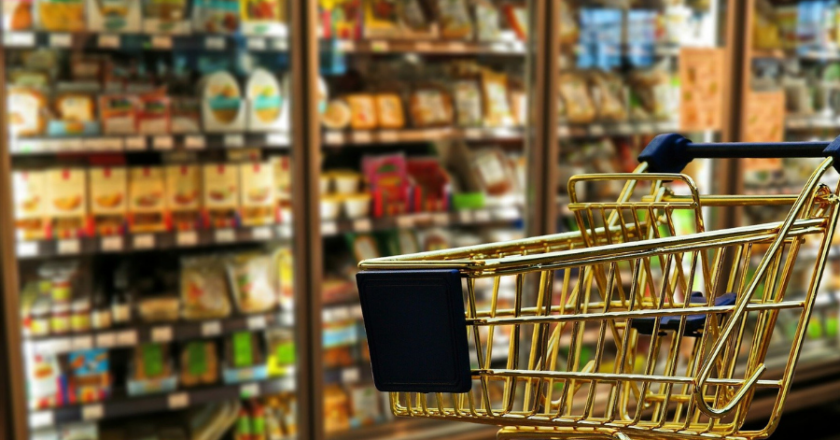
E171 (titanium dioxide) no longer safe, EFSA says
On 6 May 2021, the European Food Safety Authority (EFSA) published a study probing the risks of the toxicity of titanium dioxide – also known as food additive E171. The European Commission requested this evaluation in March 2020, as the evaluation conducted in 2016 lacked substantial data.
When used as a food colouring, this additive gives vibrancy and texture to many colourless industrial products. E171 could be found in processed food such as sandwiches, bakery wares or soups.
The main risk highlighted by EFSA is genotoxicity, more precisely strand breaks and chromosomal damage (mutations are not included). It is now up to the relevant stakeholders (i.e., the European Commission and the EU member states) to incorporate EFSA’s scientific advice in their upcoming regulation.
You can read more about it here.

ECHA’s Drinking Water Directive
On 12 January 2021, the European Chemicals Agency (ECHA) presented the revised Drinking Water Directive (DWD). This new regulation aims to harmonize the water consumption legislation within the EU member states.
To prepare the DWD, member state authorities can submit National Positive Lists and other modifications until 12 July 2021. Every starting substance, composition or constituent that meets tap water shall be added to the positive lists.
Later, the positive lists will be evaluated and combined by the European Commission. The implementation of the DWD is expected early in 2025. The main steps are summarized below:

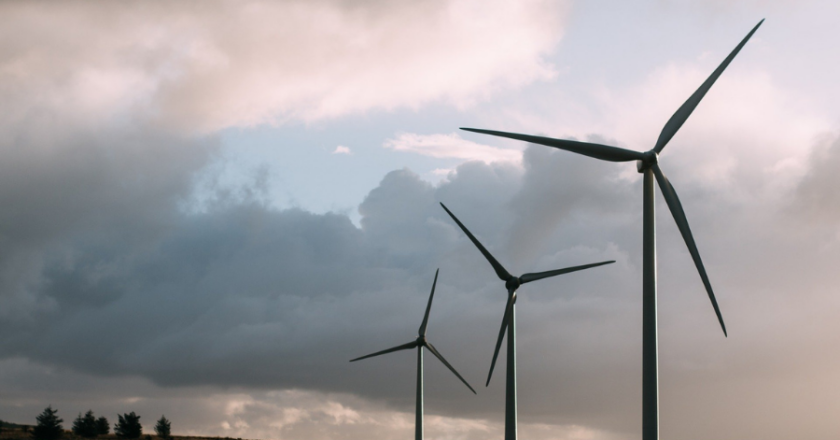
ITRE Committee on green solutions for the energy sector
The ITRE committee of the European Parliament, chaired by MEP Cristian Bușoi, met on 13 April to discuss the decarbonisation of the energy sector in view of the forthcoming official adoption of various work programmes for Horizon Europe, including the “Climate, Energy and Mobility” cluster.
Speakers’ presentations mainly revolved around green gases, blue and green hydrogen, and electrification alternatives.
During this meeting, a discussion ensued on the high percentage (70%) of the current pipeline infrastructure being Hydrogen-ready that would allow the EU to meet the Green Deal’s objectives while becoming a global leader in the clean energy field. Focus was also put on the need for a renewed mobility system and new city planning green substitutes, such as geo-thermal energy and sustainable biomass for heating.
Some additional greener options for the transformation of the global transport sector, such as E-kerosene, E-methanol, E-ammonia (especially for the aviation and shipping industry), were discussed.
Presentations were also intended to demonstrate how a quick decarbonisation of industries, as well as the energy system, was feasible through efficient policymaking.
Find out more about the ITRE committee meeting held on 13 April here.

Carbon Neutrality Agreement: ENVI Committee’s New EU Climate Law
On 20 April 2021, the European Parliament reached an informal agreement with the Council of the European Union and the European Commission during a trilogue on the new EU climate law. The European Union and its Member States could engage for carbon neutrality by 2050.
In his statement, Pascal Canfin, President of the Committee on the Environment, Public Health and Food Safety (ENV Committee), highlighted an ambitious target for 2030: carbon emissions will be reduced by 57% compared to 1990. The creation of the High Council for the Climate and a dedicated budget for carbon are the two main pillars of this new law.
Jytte Guteland (Rapporteur and Member of the ENVI Committee) provided some details regarding the application of this law in a Q&A interview. The transition to renewable energy sources will create new job opportunities and foster skill transfer. This change will include new methods to train workers. The European Union will play a great role in this through fund programmes, such as Erasmus+ 2021-2027. The choice of energy sources, such as nuclear power or sustainable resources, will remain in the hands of EU Member States.
This new text was voted on at the European Parliament on 10 May 2021, adopted by the deputies with 52 votes against 24.
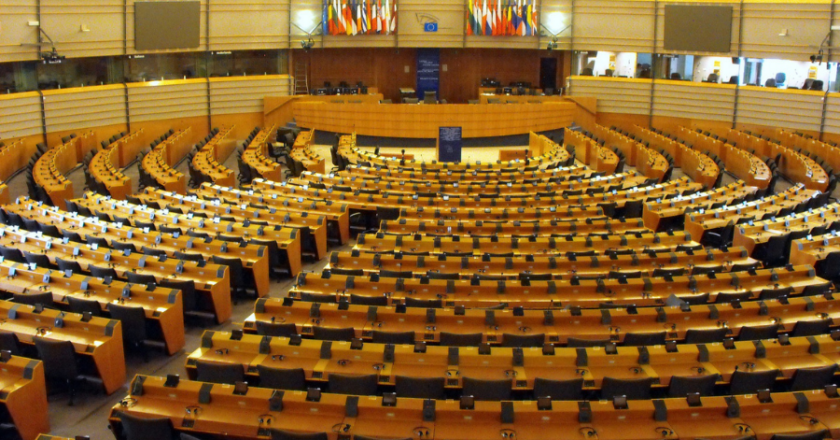
EU Parliament officially votes and unlocks €95.5 billion for HE
Late April (the 27th) has seen the €95.5 billion Horizon Europe budget’s official adoption by the European Parliament after the Committee on Industry, Research and Energy (ITRE committee) gave its final consent over the past few weeks.
Sciences will play a key role throughout the whole framework and will constitute an inherent element to the programme’s five main mission areas:
- Preparing Europe to a resilient climate transition
- Tackling cancer
- Creating 100 climate neutral cities by 2030
- Regenerating our oceans, seas, coastal and inland waters
- Ensuring that 75% of soils are healthy by 2030
Nevertheless, the European Commission postponed again the launch of Horizon Europe work programmes. Hence, the publication of calls is delayed at least until the end of May 2021. The initial publication of the Horizon Europe work programmes was due in March 2021.

In addition, chemistry will predominantly intervene under Pillar II – the second out of the Horizon Europe three Pillars – which is channelled towards “Global Challenges and European Industrial Competitiveness”; and more specifically in clusters 1,5 and 6. These will focus on “Health”, “Climate, Energy and Mobility” and “Food, Bioeconomy, Natural Resources, Agriculture and Environment” respectively. These clusters represent three of the five largest dedicated budget shares within the entire programme.
Negotiations on the UK case are still ongoing, but the former member state is still expected to take part in the multiple bilateral Horizon Europe agreements with external nations, which are provided to reinforce international cooperation. Therefore, the UK will be fully eligible to Horizon Europe calls with some minor exceptions (e.g., the EIC fund).
The country’s participation in Horizon Europe will be of utmost importance for British researchers and will maintain mutual benefits for both blocks. Moreover, the UK is also meant to take part in other EU programmes such as Euratom or Copernicus as an associated state.
With this in mind, the Royal Society of Chemistry (RSC) recently launched its own guiding webpage providing useful information on how the UK is to be integrated into Horizon Europe’s various actions and calls over the next 7 years.
Read the European Parliament Press Release on the adoption of Horizon Europe here.
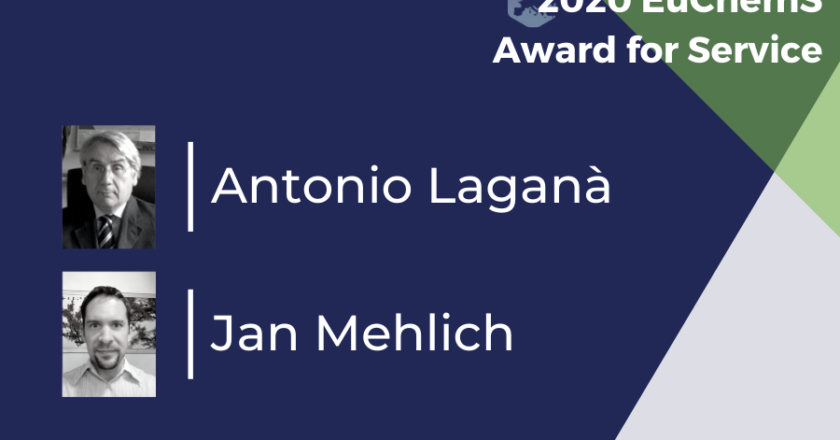
Meet the 2 recipients of the EuChemS Award for Service 2020
We are pleased to announce that the 2020 EuChemS Award for Service has been awarded to Professor Antonio Laganà and Dr. Jan Mehlich in recognition of their outstanding commitment and work in fostering chemistry in Europe, along with the activities and goals of EuChemS.
By serving on the editorial board of journals and organising several scientific conferences, Professor Laganà has contributed to the chemistry community in Europe and beyond with both his scientific achievements and services to the community.
Dr Jan Mehlich developed the free online course Good Chemistry-Methodological, Ethical, and Social Implications: around 400 students have registered so far, thus contributing to the dissemination of ethical chemistry conduct, the increasing impact of EuChemS’ activities and the enhancement of chemistry and EuChemS’ profile.
On behalf of all of us at EuChemS: congratulations!
Read more about the EuChemS Award for Service 2020 two awardees here.
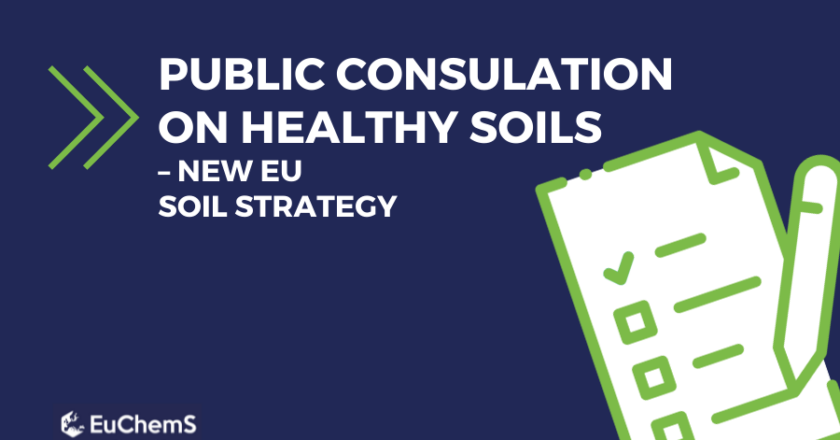
EuChemS’ EU soil strategy answer
On 27 April 2021, EuChemS answered to the Public Consultation on the new EU soil strategy. Citizens and organisations in Europe were invited to contribute to this survey on the ‘good’ soil practices to avoid soil mismanagement and degradation.
The European Commission proposed a soil assessment to evaluate the state of degradation of soil in the EU. In addition, EuChemS emphasised the balance of micro and macro elements of the soil.
EuChemS also mentioned the importance of soil research and knowledge enhancement, increased financial incentive to encourage new soil protection projects and introduced binding restoration targets for degraded soil.
You can read EuChemS ‘complete answer here.
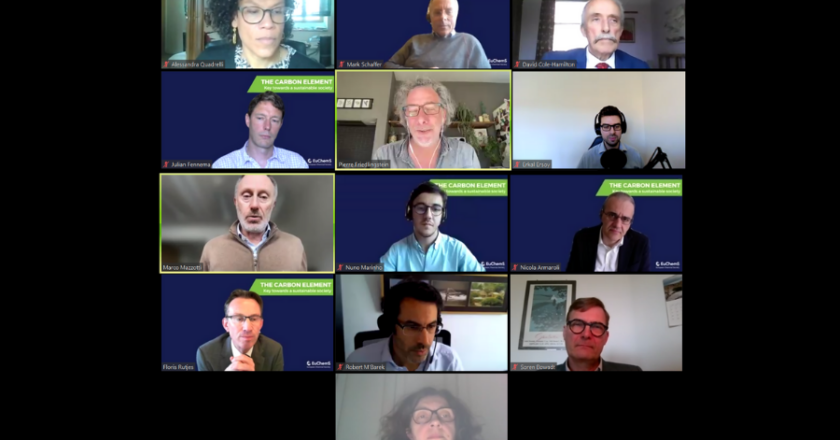
350 participants to the EuChemS’ webinar on the Carbon Element
On Earth Day (22 April), the European Chemical Society had the pleasure of hosting the webinar ‘The Carbon Element – Key towards a sustainable society’. This online event saw a wide range of scientific and EU policy discussions on decarbonization. It was also the opportunity to discuss the EuChemS Periodic Table.
This webinar was chaired by Nicola Armaroli, member of the EuChemS Executive Board, who was the driving force in shaping this event in his capacity as Chair of the EuChemS Task Group on the EuChemS Periodic Table. Over the course of five hours, the speakers from academia, research organisations and the European Commission tackled the carbon cycle, fossil fuel reserves and carbon sequestration and utilization in the energy and chemical sector from different perspectives: research, innovation, policy, economic and political. Furthermore, the attendees were invited to ask the speakers questions as well as answer polls related to the webinar discussions. Their feedback will be carefully considered by the EuChemS Task Group on the EuChemS Periodic Table for follow up actions. Welcome and closing words were given by Floris Rutjes, EuChemS President, who also led the afternoon panel discussion.
In total, 350 registrants attended the webinar which indicates the relevance of sustainability in scientific discourse. EuChemS thanks the speakers for their contribution to the event’s success. Thank you all for joining online, the presentations of the speakers can be downloaded on the EuChemS website! We invite you to watch the recordings of the Morning Session and Afternoon Session on the EuChemS YouTube channel – and consider subscribing!
If you have any questions concerning this webinar, please contact the event coordinator.


You must be logged in to post a comment.